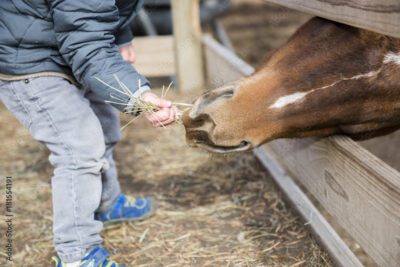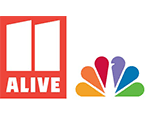By Christine Denise
Autism Mom and Contributing Writer for As You Are, a virtual clinic dramatically increasing access to early autism diagnostic services through the use of exclusively telehealth appointments
1. My children have questions about your child, what should I say to them?
Not too long ago at a soccer tournament for my neurotypical children, I noticed one of their peers watching my son with autism. It wasn’t a typical stare like I see most children do when my son is exhibiting some of his sensory-seeking behaviors like chewing his shirt or rapidly flapping his hands. It was a genuine curiosity. I saw him go to his mother and quietly talk to her. Then, she came over and said, “My son is really interested in your son, and he has questions he would like to ask if that’s OK.” I said of course and ask away. I really appreciate when parents of neurotypical kids and the kiddos themselves don’t feel ashamed to ask questions and learn more about autism. It’s better than just a stare.
2. If you ever need a break, I would be happy to babysit.
This is a big offer, just as much as it is a big ask. Caring for a child with autism is a tall order for parents, let alone parents who do not have special needs experience. In making an offer like this, don’t be afraid to say you are intimidated or afraid you might not know exactly what the child needs, but also know how few and far between offers – especially free ones – are for parents of children with autism. And the appreciation the special needs parent will have for the offer alone will go a long way. For us, I assure whoever is watching over our son with autism knows that we expect frequent calls or texts and if we don’t get them, we might get worried. It will be far from any babysitting experience you’ve ever had, but the parents will appreciate it and be part of it from afar unlike most childcare experiences.
3. Your son/daughter with autism might like…
This is a tricky one, because it is important how you phrase this. Don’t say, “you should,” or “you ought to look into,” whatever it is that you’re about to suggest. One of the constant struggles I have is feeling like I’m never reading enough, researching enough or doing enough for my special needs son. Do some research of your own on opportunities for children with autism and share what you find out with their parents. If ever someone comes along and offers up information about a new grant, or special needs camp or program, it’s like someone just handed me a gift. But also, don’t be offended if that parent doesn’t open the gift right away. It’s nothing personal. It takes some parents longer than others to explore new ideas for their children and some may still be coming to terms with their diagnosis and not quite ready to jump into the world of autism all at once.
4. I don’t know what you’re going through, but I admire your strength through it all.
Again, many parents with special needs children struggle with feeling as though they are not doing enough for their child. Sometimes, hearing someone tell them they are strong is exactly what we need to hear. Knowing that others see it, even though we can’t, means a lot.
5. How are you?
This three-word question is something we often ask each other throughout the course of a day, but when you pose it to a parent of a child with special needs, be prepared for the answer. And really take the time to go beyond just “fine” or “good.” Ask what is making them feel fine today, or good today. And prepare yourself for the honesty that will hopefully flow after that. Feeling seen for the different path our lives are taking means a lot, when sometimes you wonder whether anyone truly cares or wants to even know what it’s really like for you.
6. We would love for your son or daughter to come with and we will work with their needs.
Getting an invitation to go anywhere or do anything with a neurotypical family doesn’t often happen and, if it does, parents of special needs children might decline thinking it will be too much for them and their child to handle. Making the invitation is one thing, but taking that extra step by acknowledging that there will have to be some accommodations on everyone’s part to make it work shows us there is a mutual understanding there and desire to make it successful.
7. I’d love to put you in touch with a family I know that has a child with autism.
Especially for families coping with a new diagnosis, getting a chance to meet someone else who is further along in their journey or just starting out is helpful. Offering to make that connection is a great idea, especially because we have very little time to expand our social circles in meaningful ways. I had a fellow special needs parent invite me to a simple Facebook Messenger chat that includes about six or seven moms whom I have never met, but we all have children with autism. It’s a place to turn to and share our triumphs and heartbreaks in a very candid non-judgmental forum. Sometimes, that’s all the connection with another special needs family we need, or sometimes it could turn into a full friendship.
Do you have questions about your child’s development? The team at As You Are provides useful autism screening and diagnostic evaluations for kids 16 months to 10 years old via telehealth appointments.
Disclaimer: I am not a medical professional. This is a sponsored blog post, but all opinions are my own.


















